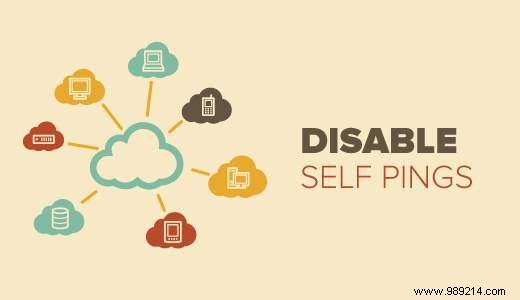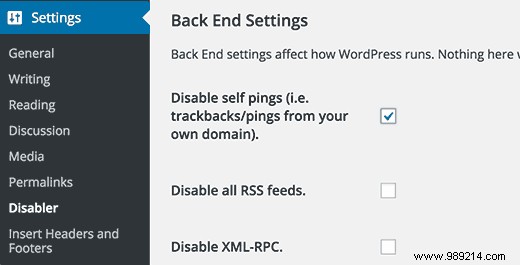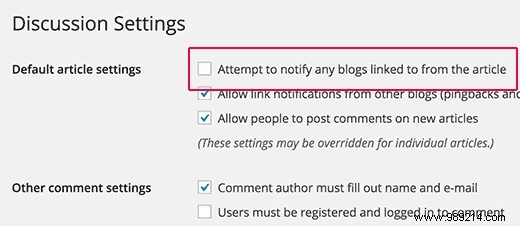Linking to your own posts, also known as interlinking, is great for SEO. However, with pingbacks enabled on your site, interfacing posts can become annoying because WordPress automatically creates a new pingback for that post. These pingbacks appear in the comments section of your posts. While some users may like this feature, many users do not find it useful. In this article, we will show you how to disable auto pingbacks in WordPress.

Pingbacks give software the ability to communicate between websites. It's almost like remote feedback. Think of it this way:
Pingbacks also work within your site. So if one of your posts links to another, your WordPress will send an auto-ping. This can be really annoying..

For more details, take a look at our guide on trackbacks and pingbacks.
Now that you know what a pingback is, let's take a look at how to disable auto pingbacks.
If you don't like the video or need more instructions, continue reading.
There are several ways you can disable auto pingbacks on your WordPress site. We will show you both the plugin method and the manual code method.
There are two plugins you can use to disable self pings.
1. Using the No Self Pings plugin
The first thing you need to do is install and activate the No Self Pings plugin. The plugin works out of the box and there are no settings to configure. Simply activating the plugin will turn off auto pingbacks.
You will notice that the No Self Pings plugin has not been updated for over two years. We generally don't recommend installing plugins that haven't been updated for a long time. Simply because in most cases those plugins don't work. However, No Self Pings is a very simple plugin, and it works even with the latest version of WordPress (4.2.3 at the time of writing).
We recommend that you read our guide on the issue of installing untested plugins with your version of WordPress.
2. Using plugin disabler
Simply install and activate the Disabler plugin. After activation, visit Settings »Disabler page to configure the plugin.

You will notice that the plugin allows you to disable various WordPress features. You need to scroll down to Back-end settings section and check the box next to Disable self-pings option.
Click the Save Changes button to store your settings.
If you don't want to use a plugin, you can use these two methods to disable autolinks on your site.
1. Disable Pingbacks globally
WordPress allows you to disable pingbacks on your site. Using this option will completely disable pingback on your site.
Simply go to Settings »Discussion page. Under the Default Article Settings section, uncheck the box next to 'Try to notify any blog linked to the article' option. Click the Save Changes button to store your settings.

2. Manually insert the code to disable auto pingbacks
If you feel comfortable adding code snippets to your WordPress theme files, then you can use this method to disable automatic pings.
Simply copy and paste this code into your theme's functions.php file or a site-specific plugin.
function no_self_ping (& $ links) $ home = get_option ('home'); foreach ($ enlaces como $ l => $ enlace) si (0 === strpos ($ enlace, $ inicio)) no establecido ($ enlaces [$ l]); add_action ('pre_ping', 'no_self_ping'); That's it, we hope this article helped you to disable self pings on your WordPress site. You can also refer to our guide on how to stop WordPress trackback spam.
If you enjoyed this article, please subscribe to our WordPress YouTube Channel video tutorials. You can also find us on Twitter and Facebook.